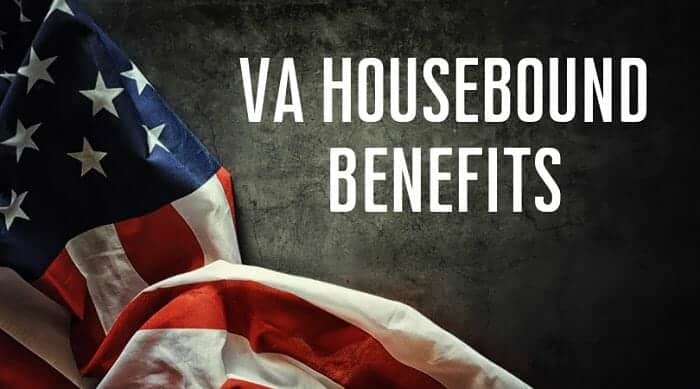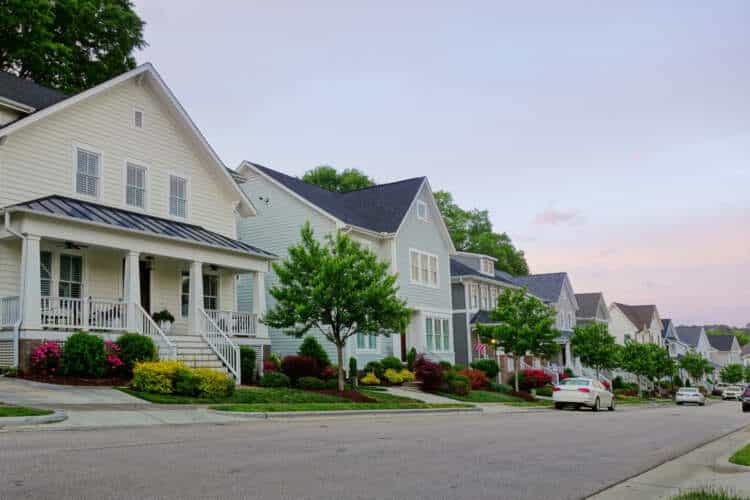VA Housebound Benefits
Updated: November 29, 2023
Veterans who need assistance with their daily activities, or who are unable to leave their homes without assistance, may be eligible for additional benefits from the VA. These Enhanced or Special Monthly Pension benefits include:
- Aid and Attendance
- Housebound
Aid and Attendance is an increased monthly pension amount, which is paid to veterans or surviving spouses who need assistance with activities of daily living and/or are bedridden. Housebound benefits are available to individuals who are unable to leave their homes or immediate location without assistance. It is not possible for veterans or surviving spouses to receive both Aid and Attendance and Housebound benefits at the same time.
Aid and Attendance and Housebound benefits are paid to veterans or surviving spouses in addition to their VA pension benefits. These additional benefits can be used to help pay for expenses such as assisted living, in-home care, or a nursing home.
Housebound benefits are an increased monthly pension amount, paid to veterans who are permanently disabled and are generally confined to their residence and unable to leave without assistance. Veterans who meet the following criteria are able to qualify for this additional benefit:
- The veteran has a single, permanent disability evaluated as 100 percent disabling. The veteran is permanently confined to their home (or immediate location) due to this disability.
- The veteran has a single, permanent disability evaluated as 100 percent disabling, or another disability or disabilities that are evaluated as 60 percent disabling or higher, confining them to their home or immediate location.
The VA considers a “housebound” veteran as significantly confined to their residence, but still able to leave with assistance. A residence could include:
- A personal residence
- A nursing home
- An assisted living facility
Who is eligible to receive benefits?
In order for a veteran to receive Housebound benefits, they must first establish their eligibility for VA pension. Enhanced pensions, such as Housebound, are based on a higher income limit. Therefore, veterans who are not eligible for basic pension may still be eligible for increased pension benefits.
Often, in order to be qualified for Housebound benefits, a veteran must prove that they have a medical need for supervision or assistance due to their disability. Most veterans are not able to get pension benefits without a special rating to deduct personal care and other medical expenses, due to the fact that their income is too high.
How can veterans apply for benefits?
There are a few ways that veterans or surviving spouses can apply for Housebound benefits:
- Complete VA Form 21-2680 (Examination for Housebound Status or Permanent Need for Regular Aid and Attendance) and mail it to their state’s Pension Management Center. The veteran’s primary care provider can complete the section on examination information.
- If they are completing this form, veterans can also include other documentation (such as a note from their primary care provider) as evidence that they require Housebound care, details about their daily routine and how they get from place to place, and details on how their illness, injury, or disability impacts their ability to do things on their own.
- Veterans can also apply for Housebound benefits in person at their VA regional office.
Once a claim for Housebound benefits has been filed, the timeline for the VA to make a decision about a claim varies. Claims are processed in the order they are received, but some claims may require priority processing and may be processed more quickly.
How much can a veteran receive in Housebound benefits?
Having a medical or disability rating for Housebound benefits is important for two reasons: the first is to allow a veteran to potentially receive a larger pension income, and the second is that it will allow veterans to receive credit for unreimbursed medical expenses (UMEs).
The amount that a veteran can receive in Housebound benefits depends on a number of factors. The different rates are below:
- Veterans who qualify for Housebound benefits and have no dependents can receive a Maximum Annual Pension Rate (MAPR) of $20,226
- Veterans who qualify for Housebound benefits and have at least one dependent can receive a MAPR rate of $25,348
- Veterans receive an additional $2,831 for each of their dependents
If a veteran’s spouse also meets the qualifications of being housebound, the veteran may also be able to qualify for Improved Pension Benefit. If a veteran is applying for Housebound benefits, they should include any documentation that validates their need for Housebound care, including:
- Information on their condition from their primary care provider – this should provide sufficient details to determine that the veteran or surviving spouse must be confined to their home and need assistance with leaving their home, as well as what activities they are able to do during a typical day and how well they are able to get around.
- Copies of any additional information, like medical records.
Veterans can receive a Homebound rating after being examined by a physician. The medical rating allows certain care and medical expenses, including:
- Home care
- Assisted living
- Additional non-medical expenses
Without a Housebound rating, a veteran may not have large medical deductions; this leads to a lower MAPR, resulting in either a much smaller benefit, or no benefit at all. A Housebound rating is also required for a veteran to be able to deduct certain medical expenses.
If a veteran has received a “Housebound” rating, the VA will allow the veteran to deduct all fees paid to a non-licensed, in-home attendant, as long as the attendant provides “custodial services,” or assistance with at least two of the Activities of Daily Living (ADLs). The VA considers the following activities ADLs:
- Getting dressed
- Showering or bathing
- Cooking and feeding themselves
- Going to the restroom
- Transferring from the bed to a chair or wheelchair
- Mobility and transportation
- Grooming
Overall, Housebound benefits allow veterans to receive a higher amount each month from the VA to cover their needs. More information about applying for and receiving Housebound benefits can be found here.
| Related Articles | |
| Aid and Attendance | State Veteran’s Benefits |
| VA Board and Care Homes | Geriatrics and Extended Care |
| VA Disability Ratings and Rules | Veteran Affairs Schedule for Rating Disabilities |


































































